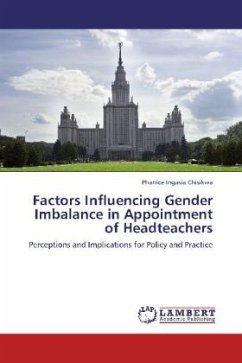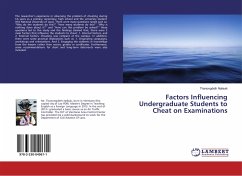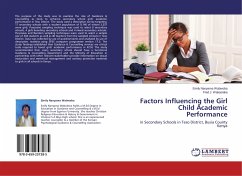Many policies have been put in place for the last two decades to enhance both male and female participation in secondary schools headship. However,females are under-represented in educational management.In Kenya,gender balance is given emphasis by the government for all public sector appointments.However,in Vihiga District in Kenya, male teachers dominated headship positions in mixed secondary schools. Out of the 34 head teachers in mixed secondary schools, only 8 (24%) were female while 26 (76%) were male. The purpose of this study therefore was to investigate factors influencing gender imbalance in appointment of head teachers in mixed secondary schools in Vihiga District. The study examined government policies, headship qualifications, staffing practices and social cultural factors from the perspectives of stakeholders: Findings showed that the factors influencing gender imbalance were: unwillingness of female teachers to take up headship post; fewer female teachers; inappropriate school location; failure by female teachers to apply for headship; female head teachers transfers; limited vacancies; male leadership dominance and school leadership traditions among others.
Bitte wählen Sie Ihr Anliegen aus.
Rechnungen
Retourenschein anfordern
Bestellstatus
Storno








